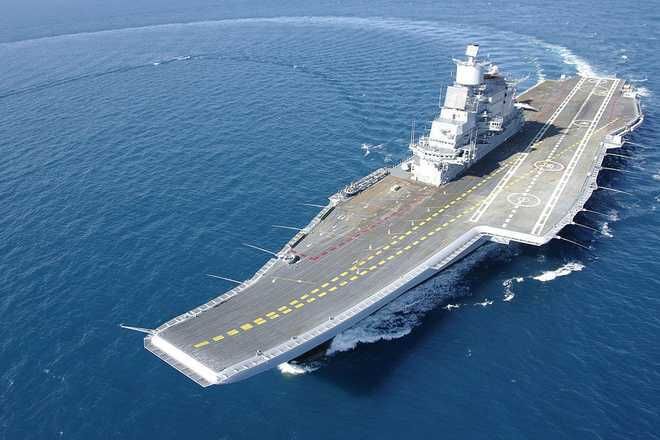Synergy between navies will bolster maritime security

The prolonged standoff between Indian and Chinese troops was confined to the Line of Actual Control, but there is another expanse where things are not looking hunky-dory. In his address at the Raisina Dialogue on Wednesday, the Navy Chief, Admiral Karambir Singh, said it was not surprising that China was trying to expand its presence in the Indian Ocean region as ‘its energy sources, markets and resources are located to the west’. He acknowledged that most threats in the maritime domain were transnational and it was not possible for any nation to go solo. The Admiral stated that the navies of the Quad countries — India, Australia, Japan and the US — had the capability and capacity to come together almost in a ‘plug and play’ manner. This assertion reaffirms the growing clout of the Quad, which held its first summit-level talks last month. The four-nation alliance is perceived to be a countervailing force against China’s rampant muscle-flexing in the Indo-Pacific region, though its members insist that there are several areas of convergence — right from vaccine collaboration, climate action, maritime security and emerging technologies to counter-terrorism.
In an impressive show of strength and synergy, the Quad navies had carried out the Malabar exercise in the Bay of Bengal and the Arabian Sea in November last year. The four nations have repeatedly pledged to ensure an open and inclusive Indo-Pacific and a rules-based international order. While China has every reason to be wary of the grouping, India’s old ally Russia is far from enthused by it, with Foreign Minister Sergey Lavrov referring to it as an ‘Asian NATO’ with apparently militaristic designs.
Despite the time-tested ties with Moscow, New Delhi has been quick to counter criticism of the Quad. During the India-Australia-France trilateral dialogue on Wednesday, External Affairs Minister S Jaishankar made it clear that the purpose of coming together was to find ways of working for national, regional and global benefit. India is rightly banking on the Quad to safeguard its strategic and economic interests. As long as the arrangement is mutually beneficial, it seems to be a win-win situation for all members.
